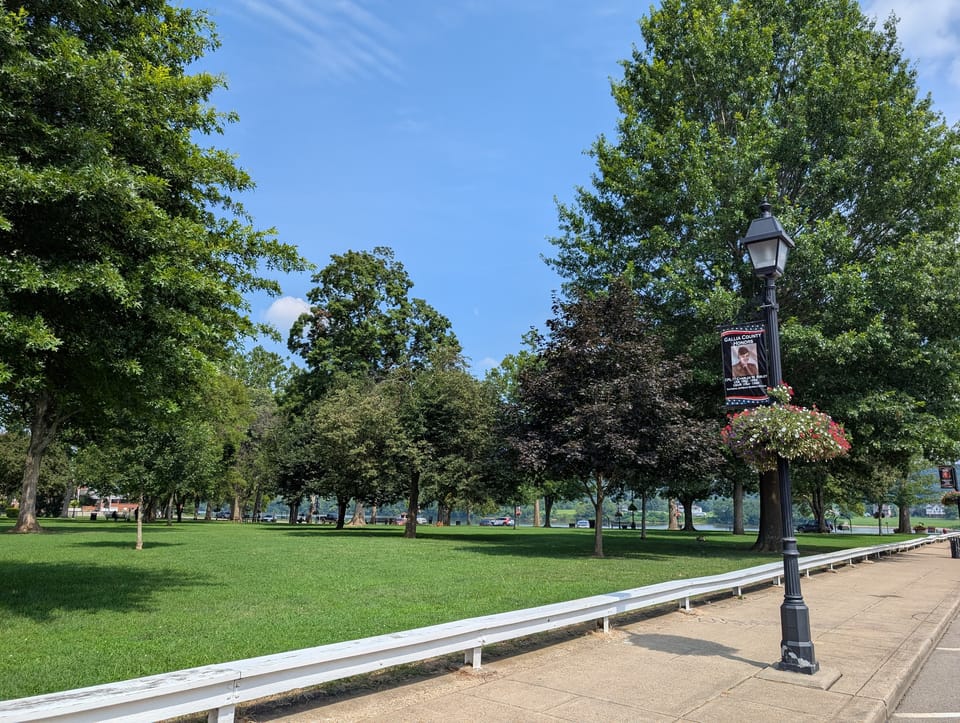What Slowing Down Made Room For

Today, we're in Gallipolis, Ohio.
Gallipolis is a village of 3,300 people on the Ohio River, abutting West Virginia. I'm sitting in a small park on the main square, watching the light dance on the water. A barge carrying coal to the nearby power plant just drifted by. A few days ago, we were in Cleveland, catching up with close friends over craft beer around a backyard fire pit. A true Midwest summer.
It’s quiet here. Peaceful. Returning to Ohio from Philadelphia feels like stepping off a moving walkway that’s been going a little too fast.
Living in a big city is an incredible experience, and we loved every minute of our time in Philly. But I didn't realize how much we needed a break from the cacophony of sirens and honking and the constant gravitational pull to go out and make the most of life in the city. The underlying FOMO made us want to do more, spend more, consume more. As a result, we slept less, saved less, and (despite our best intentions) deprioritized our health to maximize Philly’s unmatched food scene.
Right now, we don't feel any FOMO.
Tony is working ten 12-hour night shifts over two weeks. There’s no decision fatigue about how to spend his free time—because he doesn't have any. He's in a routine: wake up, work out, eat, work, sleep, repeat. While this may sound miserable to some, it's familiar to us. Almost comforting. After years of medical training, this rhythm feels normal. It's a mode we can return to any time.
I’m working too. But for the first time in months, my workload feels manageable. Thanks to the systems we’ve built for working while traveling, I have less to do even while we’re settled (go figure). I’m no longer tethered to a desk or governed by my inbox. I’m not chronically exhausted, chasing the next milestone or trying to force business growth for growth’s sake. For the first time in over a year, I'm no longer putting myself—or paying myself—last.
On Friday, I couldn’t believe it when I finished work by noon. My first instinct was to keep pushing—work ahead, read something educational, start the next thing. Then a friend called. Two-months-ago me would’ve silenced the call and suggested we “find a time” so I could finish out my work day. Instead, I picked up. We caught up between her shifts. The conversation made my day, so I called another friend I’d been meaning to connect with. Two unplanned weekday calls that filled me with joy. Two-months-ago me would have never.
Without the bustle of constant activities and events, I’ve found myself cooking, calling loved ones, and reading fiction for fun. That’s a major shift. Until two months ago, my “cooking” was hurried meal-prepping: 24 identical, healthy meals to power us through the week. This week, I drove two hours round trip to Athens, Ohio to visit the farmers market, picked up local dairy, eggs, meat, and produce, and prepared a meal simply because I wanted to.
During my drive, I called my family and I listened to several chapters of a fiction audiobook.
Wednesday is Tony’s first day off.
Unlike in his previous role, where days off clinical work meant several hours of meetings and inbox management, a day off now is a real day off. I plan to make pancakes, and then we’ll walk or hike in the Appalachian foothills. These might sound like ordinary things—cooking one meal at a time, reading, walking in the forest—but for us, they feel like luxuries of time, creativity, and mental space we genuinely couldn’t “afford” in our previous lives.
Whether those limitations were self-imposed is something we’re still figuring out. Did someone put us in a box? Or did they just open the box, and we climbed in and shut the doors behind us?
Soon, we'll be ready to depart on our next adventure to Bali, Indonesia. But until then, you can find us enjoying home cooked meals, laughing over backyard beers with friends, and reading for the hell of it.

